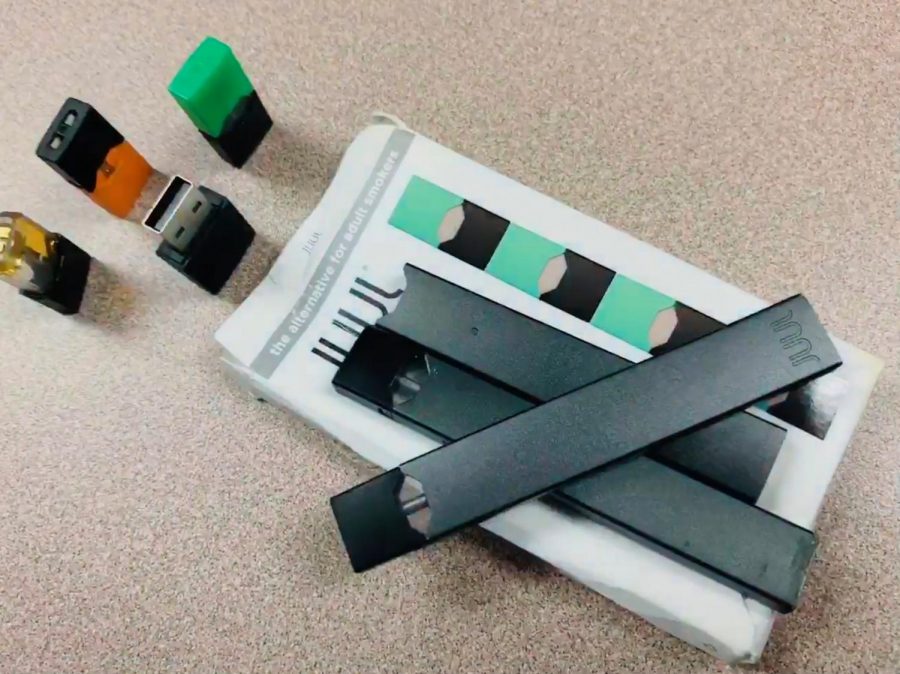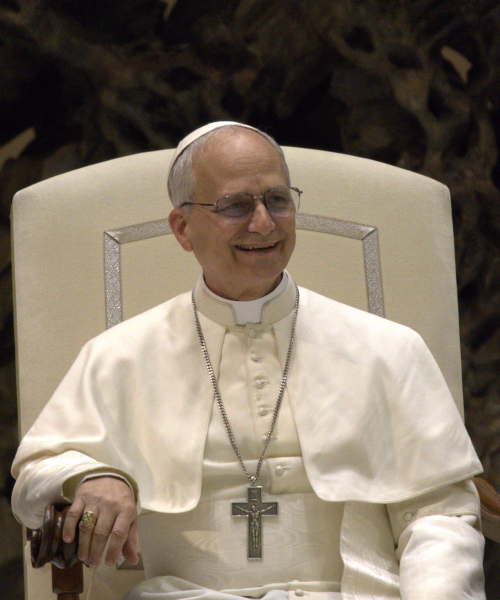Vaping, Tardies and Community Service: What you should know.
Confiscated Juuls
This year, there were three significant changes made to the High School handbook. The changes revolved around tardiness, community service, and vaping.
At the beginning of 2019, an email regarding the student handbook was sent to all the students attending school within the district. However, a poll of 20 students revealed that none of them had even read the handbook.
Previously, students received detention if they have more than five unexcused tardies in one year. The new rule states that students who have more than three unexcused tardies during a quarter will receive detention and an additional detention for every tardy after that.
When asked about the changes, Principal Eric Tracy said that teachers believed, “a quarterly accounting of tardiness will provide students with more opportunity to reflect upon and change their behaviors.”
There were also significant changes made to the vaping policy. New financial consequences will follow each vaping offense. Students caught vaping will now have to pay a fine of $100 after the first offense, $200 after the second offense, and $300 after the third offense. These vaping fines were made legal by the Board of Health.
In addition to the fines, students will also receive detention, have to complete community service hours, and be required to attend educational classes. These policy changes were the result of an increase in tobacco product use (especially vaping), which has doubled since last year. The school hopes that this will help prevent future incidents.
Another notable change revolved around community service hours. Prior to the 2019-2020 school year, community service hours were broken down by grade: 10 hours for 9th and 10th graders, and 15 hours for 11th and 12th graders.
This year, community service hours are not broken down by grade, but rather all 50 hours must be completed by the first semester of senior year.
Tracy said, “This allows students to complete community service hours throughout high school rather than only at certain points. Also, it gives seniors a better end date for community service hour completion.” One thing that did not change is that these community service hours must be sustained by a 501c(3) organization, which is a tax-exempt nonprofit organization.
There is a process for handbook changes. New rules are based on feedback from students, teachers, and administrators. Requests are then sent to the school committee who review and vote on any changes that will be made to the student handbook.
Whether student, staff, or administrator, the hope is that these changes will benefit the school community, both in the short-term and in the long run

Audrey Wang is a junior at Hamilton-Wenham Regional High School. She had never heard of journalism before so she decided to try it. She is born in China...

Grace Holladay is a senior at Hamilton Wenham Regional High School. She was born in Danvers and moved to Hamilton in middle school. She loves writing and...

Luke Twomey is a junior at Hamilton Wenham Regional High School. At the school, Luke is part of the Film Club, Model UN, the Hockey team, and the Lacrosse...










